
Learn about the 2022 Women4Climate Toronto mentees and their projects below.
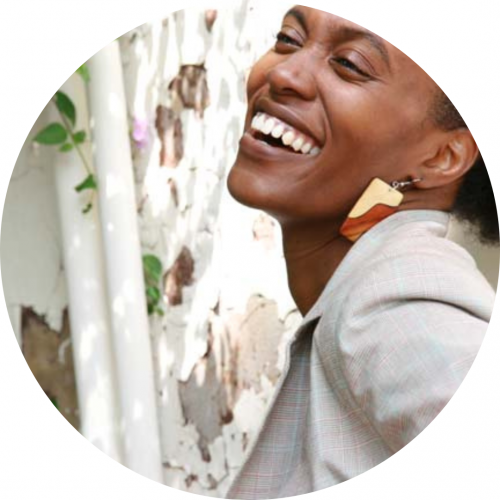
Zamani Ra is the Executive Director of CEED Canada (aka CEED – Circular Environmental EDucation), a not-for-profit organization that provides environmental education workshops to Multi-Unit Residential Buildings (MURB) residents and property owners in social housing communities. CEED’s aim is to increase climate action among tenants and encourage them to use their local footsteps to reduce our global imprint. In 2017, Zamani and a group of TCHC residents created a series of Waste Management and GHG reduction workshops. She has over twenty years of experience in community capacity building. In the past 6 years, she has secured over
$100,000 in neighborhood improvements with overwhelming support; she has become a member of Black Environmentalist Alliance, and a member of the Tenant-Staff Oversight and Advisory Board for Toronto Community Housing’s Confronting Anti-Black Racism Department. She is a Goddess of Inspiration, Warrior of Words, Sharer of Voices, Creator of Curated Content, Builder of Communities, Paradigm Shape Shifter, and Promoter of People Power.
CEED Workshops is developing a curriculum geared toward residents who live in social housing. These communities house highly racialized, immigrant groups and live in MURBs. They are resilient and vibrant communities facing many social and systemic challenges. CEED’s goal is to use a circular approach to help residents gain clarity on the significance of, and apply, climate change behavior in a way that is simple, convenient, and culturally relevant to assist the City and its GHG reduction targets. In addition, the workshops will be delivered through an equitable lens to demonstrate how the impacts are felt by various groups. Two of the City’s 2030 Net Zero Targets is to achieve 70 per cent residential waste diversion from landfills. The other is to identify pathways to more sustainable consumption and Waste, Engagement, and Equitable Implementation. We believe CEED is aligned perfectly to the Net Zero Targets and Actions specifically directed towards buildings.
In May 2017, Scarlett Manor, a Toronto Community Housing neighborhood in Etobicoke, experienced a devastating flood that caused extensive damage to 3 of its 13 floors. Upon inspection, it was determined that items such as, “flushable” wipes, small pieces of material, hair, and other miscellaneous items were the cause of the flooding. Some residents suffered serious losses. Then it happened again (3 more times in fact). Inspired by watching the families most impacted by the floods navigate the damage and destruction, I decided to do everything in my power to prevent this from happening again. This and subsequent floods opened up the opportunity to educate residents about what waste items should go where, and ultimately, why it matters. I became a 3R Ambassador, gathered a group of tenants from elder to youth, with mixed levels of expertise, and we formed Scarlett Environmental Awareness Team. With a strong educational focus, we ran mini-lessons on waste and recycling. The mini-lessons also highlighted the need to incorporate an equity lens because not all communities can respond to the effects of climate change in the same way, which proved to be a major hit. That initiative has led to the establishment of CEED Canada.
I love it when someone lights up because they learned something new and useful. The engagement we provide brings our actions full circle and inspires people to become intentional doers as a result. I want to see impactful long-term change and I feel I can only do that by being part of the solution, not the pollution. Our brilliant waste exercise has much to offer communities battling waste issues. A user-centric focus and a shift in mindset and consistency are three of the main steps required to make climate action matter more to more people for generations to come.
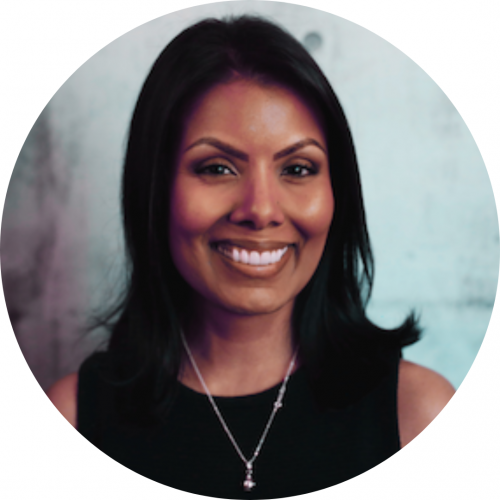
Deborah King wants to bring awareness to the environmental and social impacts of clothing manufacturing, its eventual disposal, and the power of consumer influence. She is the Founder and CEO of Global Measure, Canada’s first social enterprise focused on measuring and certifying the sustainable impacts of fashion brands. She is an environmentalist proficient in ethical and circular fashion systems. She has a Bachelor of Applied Science in Industrial Engineering from the University of Toronto, and a Post-Graduate in Sustainable Fashion Production from George Brown College. She’s an innovative leader with over 10 years of experience in fashion, supply chains logistics, and quality management. She’s skilled at leading diverse cross-function teams in achieving ESG goals and business targets. Through Global Measure, she aims to guide and influence the fashion industry to adopt a more circular and climate-neutral model. She also plans to certify and promote brands that uphold sustainable standards and metrics.
Global Measure is North America’s first social enterprise focused on measuring, validating, and certifying sustainable and ethical fashion brands. The fashion industry is one of the most polluting industries in the world and a major contributor to climate change. Fashion brands often rely on long and complex supply chains that utilize production facilities in several countries. Global Measure aims to create transparency in a typically closed industry. This initiative helps mitigate the impacts of climate change for established businesses and prepare new businesses by helping them ensure their practices stay within the planetary boundaries. Utilizing a comprehensive certification standard, created in consultation with academia and industry, Global Measure performs a risk assessment of fashion brands’ supply chains, provides recommendations for change, and certifies those companies that can meet stringent criteria. Brands are provided with a score indicating their ‘global measure’ against stringent criteria and an action plan with clear steps to help improve their score and subsequent environmental impacts. Consumers can validate which brands and products are certified through Global Measure’s online portal supporting verified sustainable brands and reducing negative environmental impacts.
I’ve always had a keen interest in how things work and how they could be improved, which led me to become an Industrial Engineer. Throughout my career, I’ve always maintained a love for fashion. I decided to pursue this passion by taking evening classes on fashion production. Getting more involved in the fashion community created a greater awareness of the negative impacts of fast fashion including excessive textile waste, toxic water pollution, and the oftentimes poor working conditions of garment workers. I wanted to combine my passion and skills, so I decided to go back to school to pursue a post-grad education in Sustainable Fashion Production. Through this program, I built a network of peers, professors, and advisors who I worked closely with to define what
‘sustainable’ means in correlation to the fashion industry. Leveraging my engineering background, I was able to create a comprehensive standard that captures ESG measures required to legitimately consider a fashion brand as sustainable and ethical.
“Sustainable” has quickly become the latest buzzword many companies have latched on to in advertising campaigns. Often, companies focus on one or two metrics to prove how sustainable they are. Sometimes there are no metrics to back up this claim, instead, there is imagery and verbiage attempting to influence consumers. These greenwashing campaigns are overshadowing sincere efforts by companies invested in ESG endeavors. Data supports that if given the choice consumers would choose a sustainable alternative over a conventional one. I want to help consumers make the right choice by differentiating legitimately sustainable fashion brands from greenwashing noise.
Homes to Zero is a collaboration between founders Carolyn Moss and Simona Sund of MOSS SUND architects and Adekemi Oke who holds a Masters in Entrepreneurship.
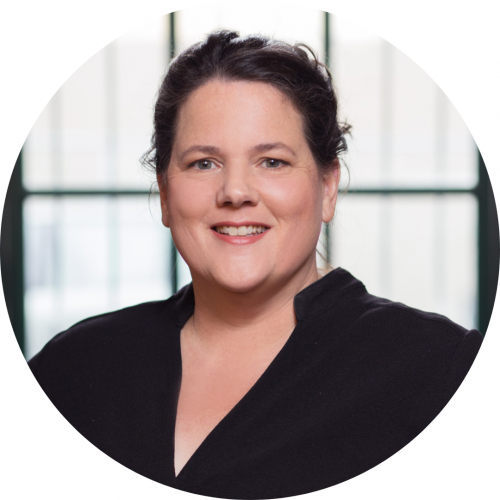
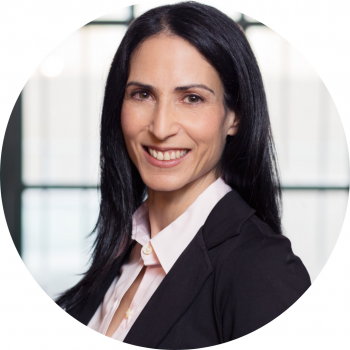
Adkemi Oke is a Sustainability, SDGs and Climate Change Consultant for PwC. She develops solutions to the sub-Sahara challenges of emissions, waste management, climate change, and social equality. Adekemi recently completed a Master’s degree in Management Innovation & Entrepreneurship from the Smith School of Business at Queens’ University.
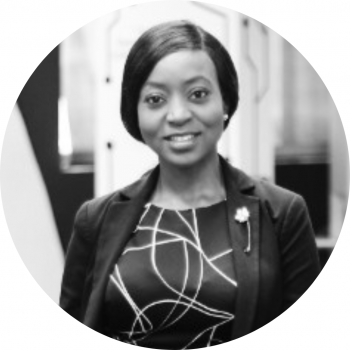
The team has expanded to include a group of amazing and accomplished Toronto women passionate about using their experience and expertise to create a better tomorrow for Toronto through a mass roll out of deep energy retrofits of existing homes.
Canadians spent in excess of $55 billion dollars last year on home renovations. Energy use in buildings is the major contributor (55 per cent) of GHG emissions in Toronto with single family homes accounting for the largest share at 31 per cent. Most homeowners are not aware of the impact their homes have on climate change. Homes to Zero is an online platform that serves as a ‘one stop shop’ to facilitate the mass-scale roll out of Deep Energy Retrofits on existing homes in Toronto and across Canada. We partner with municipalities to provide home retrofit programs. Using big data, we can create tailored plans in support of government climate change commitments. Deep Energy Retrofits are complicated. We provide an easy to follow 5 step process that takes homeowners from where they are now to a comfortable, resilient, zero emission home. The platform will use data driven solutions, AI and an affiliate/marketplace model that will provide education, evaluation, planning, implementation (including financing) and monitoring in one place, allowing the industry to move from the current state of one-off to mass-scale retrofits.
Homes to Zero was conceived in the Fall of 2019 by founders Carolyn Moss and Simona Sund to support the Government of Canada and City of Toronto’s Net Zero by 2050 commitments. Retrofitting existing homes is a key component of the plan and something Carolyn and Simona, as principals of MOSS SUND, a boutique architecture firm in Toronto specializing in sustainable residential design, were very familiar with. However, we knew that combatting climate change required mass scale home retrofits and the solution was larger than our firm. Through the Ivey School of Business entrepreneurship course at Western University we came up the idea to use our expertise and network to assist homeowners in navigating the complex process of making a home Net Zero. In April 2021 we partnered with Masters candidate Adekemi Oke and went to work on how to get the 10 million homes that exist in Canada today to Net Zero as quickly and equitably as possible.
There are over 10 million existing single family homes in Canada – the majority of them are kept warm by burning fossil fuels. We all need to understand the energy our homes are using, how that energy use impacts the environment, how we can make changes so our homes become carbon neutral or positive and how those changes will lead to a better quality of life for our families. Making our homes net zero is the biggest contribution individuals can make to combat climate change. Retrofitting homes for energy efficiency is what we know. ProjectZero takes our experience and expertise and turns them into super powers for the creation of a better and more sustainable planet.

Romina has a B.A. in Environmental Studies and Economics, with a Minor in International Development Studies, as well as a Diploma in Event Management. She is the Founder, Lead Consultant and Speaker of Eco-Friendly Events, a consulting agency that supports event organizers and businesses by bringing a holistic, accessible and realistic approach to implement green initiatives.
Intersectional Environmentalism.
Accessibility.
Transparency.
These are her pillars.
Through Eco-Friendly Events, she advocates for environmental and social justice and strongly believes in approaching environmental sustainability with incremental, yet impactful actions. Her aim is to educate all event organizers such that having an event sustainability strategy is second nature, and simply part of the planning process. Outside of work, you can find Romina reading a good book with a giant cup of coffee or in the water swimming, scuba diving or surfing.
A typically 3-day conference produces 1.89 kg of waste per day and 176.67 kg of carbon emissions a day (MeetGreen, 2014). The injustices happening to marginalized communities and the planet are interconnected. Developing countries don’t necessarily have the infrastructure in place to protect themselves from increasing natural disasters caused by climate change. But even here at home, low income communities (generally populated by BIPOC) are situated next to landfills or manufacturing plants and thus have difficulty accessing clean air, water, nutritious food or natural spaces. BIPOC are disproportionately affected. As a consulting agency, Eco-Friendly Events supports event organizers by providing the environmental expertise to their team, by building out an event sustainability strategy that will reduce the amount of waste and carbon emissions produced by each event. The consulting services starts with figuring out what matters to the client and event production team i.e. their eco-values. From there, we can use these eco-values along with budget as the guiding light when selecting eco-friendlier options from venue, catering, transportation, carbon offsetting and more. We support the implementation of the plan as well as measuring the impact of the sustainability strategy by using a carbon footprint calculator, weighing the amount of waste diverted from landfill as well as the electricity and energy consumed on-site. During the planning process, we also strive to prioritize BIPOC communities, businesses and vendors when making supplier recommendations to our clients. We firmly believe that there is no environmental justice without social justice and that we must tackle both in order to protect the people and the planet.
After completing my Bachelors in Environmental Studies, I always knew I wanted to do something actionable to create impact. Shortly after, I decided to go back to school for Event Management and while I worked as an intern I fell into the world of festivals. I took notice of how much waste was created after each event, observing that some efforts were made (but fell to the wayside) and that it didn’t necessarily matter if there were recycling and organic bins on-site when attendees didn’t know which bin to toss items in. It immediately clicked that there was an opportunity for me to bridge the gap between environmental sustainability and the events industry by combining my educational backgrounds. The issue I began recognizing on-site was the lack of awareness by attendees, environmental expertise on the event production teams and leadership. That is when I founded Eco-Friendly Events to bridge this gap and to provide the environmental expertise and leadership to event production teams while simultaneously educating attendees through on-site signage and pre-event marketing.
It’s truly heartbreaking to see the drastic changes in weather conditions across the globe in the last few years and how it has affected the inhabitants of these areas. Apart from wanting to protect people (especially marginalized communities) from future and worsening conditions, I also think that each person has a gift to share with the world and without a planet, they are unable to share it.
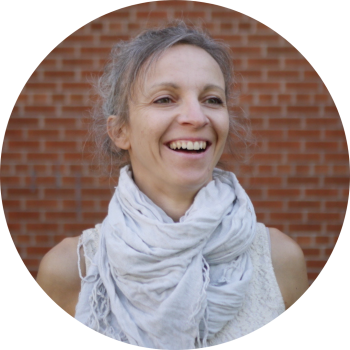
Agata is an environmentalist with a passion for tackling plastic pollution using circular economy solutions. In 2014, when cycle-touring around South East Asia, she saw first hand the devastation plastic caused and decided to make a meaningful change. She started reducing her own waste and after a few years she joined two other female entrepreneurs to launch one of Toronto’s first reusable takeout container programs. She brings that experience to her newest project Packt, a reusable packaging company helping Toronto food businesses switch from disposables to reusables. Before becoming an eco-preneur, she was on the board of directors of a Canadian environmental publication (AJ) and worked for a land trust. Back in the UK, she worked to tackle inequalities in education access as well as in HR. She loves nature and sports. Capoeira and hiking are her favourite activities.
She has a Masters in Organisational Behaviour and you will often find her reading about human mind and development.
Packt is a circular economy venture which allows food businesses to move away from disposable packaging and embed reusable packaging in their operations. Packt rents reusable food packaging to food businesses selling dry bulk foods like coffee, herbs, teas e.g. coffee roasters, cafes. They then sell their products to the end consumer in Packt bags. It is ideal for businesses unable to run their own reusable packaging systems in-house. Reusable Packt bags circulate in a closed loop between Packt, food businesses and shoppers, reducing the demand for disposable packaging and filling a market gap of reusable soft packaging (bags) for small businesses. We track, collect, wash, sanitise and restock the bags, saving our clients time and effort while helping them operate more sustainably. We use durable bags made by a women-owned business in Quebec. Bags are made of hemp and cotton with a food grade waterproof inside. Packt aims to reduce packaging-related GHG emissions through reducing the need for the extraction, production, and disposal of disposable packaging materials. We want to do it by ensuring that reusable packaging becomes a norm rather than the exception it is right now.
From the very beginning, Agata and her co-founder knew they wanted to work on a circular economy solution to disrupt the disposable packaging status quo. They interviewed several Toronto businesses to understand what challenges they are facing while using disposable packaging and what reusable solutions they have tried. Agata and Beth discovered that several food businesses (especially coffee roasters) wanted to use reusable bags to package their products but the only option for them was to buy bags and run the system in-house which wasn’t feasible. And so Packt was born – a reusable packaging service.
Time spent in nature with my family fuelled my love for all things wild. I was lucky to grow up foraging for wild mushrooms, hiking on the local trails and sailing. That combined with my life-changing experience cycle-touring South East Asia in 2014 culminated in me becoming an eco-preneur. Communities and ecosystems around the world are paying a high price for the convenience of disposables. Although I can’t solve all problems, I can do something. Idealist by nature, I am a great believer that individual actions count and want others to believe that, too.
Find out more on Agata’s LinkedIn.
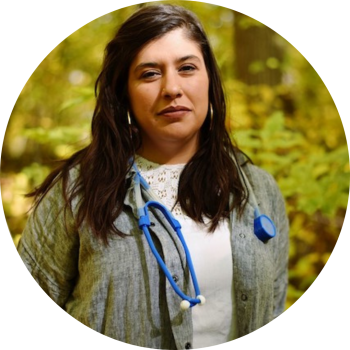
Shabina is a community herbalist working to uplift Indigenous medicine and land stewardship systems. She is the Co-Director of Seed, Soil and Spirit School, a grassroots educational organization that works alongside primarily Black, Indigenous, and racialized herbalists, knowledge keepers, and elders to offer culturally respectful, self-determined, and decolonial approaches to medicine and land stewardship. Shabina works as the Editor-In-Chief of the Journal of the American Herbalists Guild: a peer-reviewed, internationally distributed publication. Her passion for research and Indigenous medical sciences has also led her to work alongside Dr. Nadine Ijaz, examining research-related curricular interventions in Chinese medicine. Her work has been internationally recognized for using traditional medicine to support communities most impacted by colonization and environmental racism. She is also a mom of two and an avid gardener.
Seed, Soil, and Spirit School is an educational organization that offers culturally respectful, self-determined, decolonial approaches to Indigenous medical and agricultural sciences. Since its inception in 2019, the school has had over 200 students. Seed, Soil and Spirit School is proud to have offered over $27,000 in scholarships to students for communities most impacted by colonization through grassroots fundraising and in-kind donations. The schools’ Co-Directors, Shabina Lafleur-Gangji and Stephanie Morningstar, are currently developing a new program, “Wild Foraging in Right Relationship.” This course will highlight and engage Traditional Ecological Knowledge with and for BIPOC communities regarding kincentric, biocultural approaches to land relationship, wild foraging, and plant medicine that will result in increased biodiversity and climate resilience. This course will work with Indigenous Knowledgekeepers who hold traditional knowledge about wild foraging and plant medicine and practice climate-resilient land management practices to develop a curriculum that manifests a vision of cultural humility in wild spaces. The goal is to reach environmental advocates, cultivators, foragers, and activists to ensure they have the tools to help support biodiversity and local food Indigenous systems that honor Indigenous knowledge.
Seed, Soil, and Spirit School was birthed out of a dire need to ensure that the next generation of racialized healthcare providers, environmental advocates, and farmers have the tools to access and implement traditional approaches to the health of the Land and its Peoples. After years of seeing our communities suffer from systemic violence, lack of access to traditional foods, and higher levels of disease, we noticed very little support available for those offering culturally-important tools for addressing these issues. As the two Co-Directors, we have over three decades of education in herbal medicine and have worked alongside hundreds of practitioners and knowledge keepers. So starting this educational organization felt like the next step to mobilize our communities.
Our goal is simple: to build educational tools and provide financial support to those working on the ground. Through our work, we arm our people with the knowledge of our ancestors to promote community health, wellness, and climate resilience.
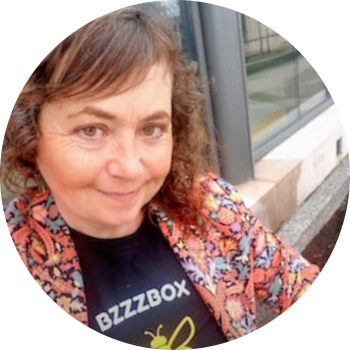
In 1967, Corina was born in Toronto. Her family roots in this area date back to the 1750’s; when her family came from Ireland to be hemp farmers in the new land.
Corina always knew that the secret to a fulfilling life was in the garden. As a child she would pick the dandelions off the lawn to keep them from being cut by the lawnmower. For many years, she enjoyed a successful as a Floral Designer and rose to the heights of becoming one of Toronto’s most renown Event Coordinators.
In 2012, Corina became one of an accredited Green Roof Professional. She began her second career in Urban Agriculture with an opportunity to work with the community to design one of the first on the green roof gardens in Toronto. Through the success of this rooftop garden, she learned about the power of growing food to build inclusive communities.
From this experience, Corina became motivated to develop a new scalable way for people to grow their own food in urban areas that would become known as MyGroBox.
MyGroBox Modular Garden System is a local solution to a global crisis. MyGroBox is a proven way to grow bigger plants with less water and harvest larger yields than traditional growing methods. MyGroBox enables people to grow their own fresh vegetables, heathy herbs for teas and native wildflowers to feed the bees… in one square foot of space.
MyGroBox is the perfect growing solution for schools or at home on balconies, decks or rooftops. MyGroBox has the potential to provide accessible healthy food for all and will also have a measurable positive impact on climate change. The benefits of MyGroBox will help to mitigate the effects of climate change through carbon sequestration in the soil and the exchange of CO2 for oxygen through the plants. MyGroBox will also absorb rainfall runoff in the soil and expire the excess moisture through the leaves of the plants. Growing food at home and at schools with MyGroBox will help lower the carbon footprint of long distance food delivery. Freshly grown food last longer and creates less waste that will lessen the amount of methane off gassing from land fill dumps.
The power of MyGroBox is in the potential of mass distribution to the public that would rapidly scale our efforts to mitigate the effects of climate change while making growing fresh food accessible to all.
Through her engagement with the urban agriculture community, Corina soon realized that the demand for growing space in the city far exceeded the amount of garden and green roof spaces that are available to the public. At that point, Corina set off on her journey to find a new way for more people to grow their own fresh food in urban areas as there is limited access to garden space on the ground. In 2014, Corina enrolled in the Humber College Landscape program with the goal of developing her idea of a scalable way for more people to have access to growing their own food. By the time she graduated in 2016, she designed and built the first garden kit prototype called the “Garden To Go”.
As her research continued, Corina became aware of the plight of our native bees and designed the second prototype – the “BuzzBox”. This garden kit was designed to empower people to grow native plants from seed to help create nesting, feeding and breeding habitat in urban areas.
Corina continued her research and development and is now ready to go to market with MyGroBox Modular Garden System that incorporates all of the best attributes from the previous prototypes.
MyGroBox includes everything to enable people to grow their own fresh vegetables, healthy herbs for teas and native wildflowers in one square foot of space.
Corina has devoted the last 7 years of her life and all her resources to develop MyGroBox Modular Garden Systems. She is highly motivated to answer the call of our collective responsibility to make a positive impact and create a better future for all living creatures on this planet for generations to come.
Find out more:
LinkedIn

I am a Toronto-based surgeon, wife and mother of two, passionate about leaving a better world for our future generations. I grew up in Mississauga, completed my undergraduate training at the University of Toronto, and my medical training at Western University. I am the co-founder and co-chair of Green is Health, a climate and health focused physician interest group through the Ontario Medical Association. I have also helped to create a Green Team at the Scarborough Health Network, which aims to adopt environmentally-friendly practices within our hospital setting. Through my experience with climate-related initiatives, I am trying to create more sustainable communities and influence greener practices.
MUST (Multi-Use Storage Technologies) is an easy and convenient way for businesses (ex. restaurant, bulk produce shops) to track their containers through our third-party labelling system. We will provide businesses with easy-stick, durable labels for their reusable containers. The choice of container itself, is completely up to the business’ discretion. When scanned, these labels will match their own personal database. The business will have full control of the data entry (ex. Type of food within the container, nutritional information, deposit amount, restaurant name, number of uses for the container etc). This system will allow for the return of containers to be transferable, similar to the successful Beer Store deposit system. We hope that in this way, we will make it convenient for restaurants and stores to have a deposit system as we move toward a more circular and sustainable economy. Customers and businesses alike will be able to track the amount of times a container is reused, providing them with feedback about container durability, as well as their direct impact on decreasing local waste. Once the container reaches its end of life, the business could return the container to the original manufacturer for reuse of its components (depending on manufacturer policy of course!). This project aims to reduce plastic waste, decrease emissions from the creation and transport of disposable containers, and most importantly – make our takeout guilt-free!
During the pandemic we saw how much the world shifted, and unfortunately this shift included a lot of increased waste. We were torn between wanting to support local restaurants, but also between the copious amount of plastic waste that resulted from this. The news cycle reflected this, bringing to our attention that only 9 per cent of plastic is actually recycled, and the rest conveyed to landfill waste. As my family’s personal focus turned to the reuse and upcycling of items, we started to brainstorm how restaurants and industry could likewise reuse items. With the announcement of the upcoming federal Plastics Ban, we thought that our invention would be timely and useful.
I strongly believe that we owe it to our collective children and future generations to mitigate the effects of climate change. In my profession, the oath that we swear is to “do no harm”. As a physician I can see the impact that climate change is already taking upon the health and well being of others – be it my own family, or patients who I treat. It is with urgency that I feel that we must, and can do better.
Find out more:
Website

A graduate of the Canadian Dance Company and the Randolph Academy for the Performing Arts, becoming an artist has been a lifelong journey. She has had the privilege of working with many international entertainment companies, performing in a variety of theatrical productions all across the globe. At the age of 31, she has been to 32 countries and through her travels has made an effort to better understand the world and its inequities. Alongside her artistic endeavours, her passion for climate justice and environmentalism has been ongoing. Over the past two years she was able to complete two courses: “Greening the Economy: Sustainable Cities” from Lund University in Sweden and “Political and Moral Foundations” from Yale University. She has participated and volunteered for many climate change and social justice organizations with Friday’s For Future, 350 Canada, Not Another Black Life, Every Child Matters, Black Lives Matter, Juneteenth, Banking on a Better Future and Toronto Indigenous Harm Reduction. Currently, she is in creation of her theatrical multimedia dance piece called THE FOURTH R: reduce, reuse, recycle, Revolutionize. This high energy, musically driven presentation is meant to impact school students and young people to demand for climate justice.
The Fourth R is an energized look into the people and behaviours that fuel one of the most pressing topics on planet Earth: global warming. The piece revolves around three characters who are emblematic of three major players in this crisis: those that produce, those that consume, and those that suffer. The spirit of this piece is in the fact that we are all reflected in one or more of these characters, and their trials and even shortcomings resonate universally. The Fourth R uses dynamic music and high energy dancing to inspire students to personally connect with these systemic issues.
The success of the Fourth R will be first determined by the students’ response and engagement in the talk back that will immediately follow the performance. The longterm effects will be determined in the following months as we expect to have inspired youth groups to take action in ways that make sense to them. Beyond that, we hope that using dance-theatre as a conveyor for climate change activism will stir up excitement and hopefully a sense empathy that will remain with these young minds as they develop into future leaders, CEOs and policy makers.
Dance Fachin promises to remain in contact with each school to follow up on their sustainability progress and continued pledge to the environment.
I have been interested in environmental activism my whole life. The more I understood the major threats about fossil fuels, government corruption and lack of policy, I felt I had a choice whether to be overwhelmed, apathetic or driven. Thanks to a network of activists, I have been inspired more than ever to rise to action and to devote my artistic output to empower all themes of climate justice and environmentalism. Believing myself to be a leader, I have the responsibility of sharing this passionate message with as many people as I can. Reading Noami Klein’s On Fire helped to inform the perspective that young people need to be brought into the conversation as soon as possible. This is how I’ve come to imagine a narrative dance piece that centred on the environmental crisis that could be accessible enough for schools and young activists.
Working in schools, I see first hand the mindset when it comes to climate activism. There are some schools that are highly conscious, encouraging low waste lunches and composting programs. However many schools in the GTA still use styrofoam and single use plastics in lunchrooms. The Fourth R is designed to be an exciting way to initiate these conversations in our schools and extended into our community.
It’s a painful fact that many people are unaware of just how devastating the effects of climate change will be on our daily lives. I believe a systemic change in policy and ideology is the only chance we have to prevent disaster. An issue this big needs widespread attention and unfortunately these conversations are still under supported. As a dancer I’ve dedicated my life to technique and expression, sometimes informed by a story or a feeling and other times not. However as an activist I no longer find it sufficient to make art for art-sake. The call is stronger than ever to wake up and use our platforms for change.
Find out more:
Website
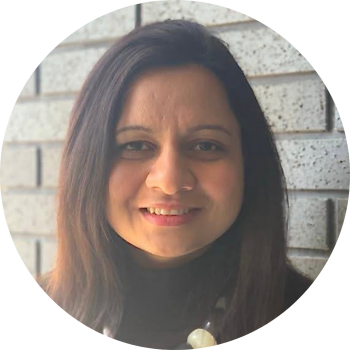
I am the founder of Clobe Connect, a company that connects clean technology companies with businesses & investors through its Clobe Platform.
Before starting Clobe in 2021, I had more than a decade of experience in the energy industry with organizations like Shell and Essar Energy. Having worked in three continents, I have rich experience leading country business units developing new business partnerships, corporate strategy, and mergers & acquisitions. During my career, I worked on several techno-commercial assessments of alternate energy solutions and became a strong advocate of energy transition towards a low carbon future.
I have a Master’s in Business Administration and am currently pursuing the Climate Change Policy and Corporate Response program from the University of Toronto. I also started Clobe Research, the publishing arm of Clobe that focuses on insights on climate and cleantech. The highlight of this initiative is the Spotlight series that features extraordinary clean technology companies and their founder’s journey.
Clobe Connect is a Canada-based company that connects clean technology companies with businesses & investors through the Clobe Platform. The Clobe Platform is the first global web-based platform that aims to create the largest ecosystem of cleantech players globally, bringing together cleantech solution providers at all stages of maturity, businesses, investors, and industry partners for R&D collaboration.
I firmly believe that technology is going to play a critical role in fighting climate change. The challenge of limiting global warming and reducing greenhouse gas emissions cannot be achieved with only one solution but several innovative technologies all over the world. Our mission at Clobe Connect is to expedite the deployment of clean technology solutions by making the process of finding the right cleantech provider efficient, effective, and at a considerably low search cost. Hosting companies worldwide, the platform aims to remove regional barriers and create a global solution to fight a global problem.
My parents live in Delhi, and every year when I went home, I saw the air quality deteriorating. In 2019, the air quality index (AQI) in Delhi reached 500+ (anything >100 is unhealthy and >300 is hazardous), and frequent reports of floods, wildfires, and other climaterelated disasters were coming in from all over the world. That is when I realized that climate change is not happening decades later but affecting us now and everywhere. I started researching the science behind climate change, the trends over the years, and the magnitude of its impact. This is when I discovered my connect and decided to contribute to the fight to limit global warming and quit my job to work towards this cause.
Understanding the energy industry and having evaluated climate technologies, I knew how vital technology would be in fighting climate change. The problem is that the existing breakthrough technologies are not getting deployed at the pace the world needs. Cleantech companies struggle to find customers, and businesses spend a lot of time finding the right cleantech partner. Search cost is very high, and the process is ineffective. I knew I had to find a solution to this problem, and that is how Clobe Connect was born.
We are seeing increased severity and frequency of climate disasters in all parts of the world that we are not prepared to face. What we do as humans in this decade will determine the survival of our generations to come. We need drastic transformations in all spheres of life and deploy innovative technologies to create a sustainable future.
As Mahatma Gandhi said, “Be the change you want to see in the world.” Clobe derived from “Clean Globe” is my contribution to fighting climate change and is the purpose I have committed to working towards to the best of my ability.
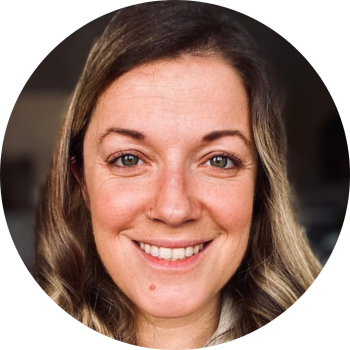
Jen has worked in the event industry for almost a decade, producing athletic and consumer events from local markets to international road races and triathlons. Through her current role as an Event Manager with Canada Running Series, she works to implement sustainable initiatives into the national road race company’s day-to-day operations. Building a niche through her passion for sustainability led her to pursue a Master of Arts in Environmental Practice through Royal Roads University, with the intention of supporting further initiatives to improve the sustainability of athletic events across Canada. Jen developed a love of sport playing rugby with the University of Guelph and Toronto Scottish RFC, and found a way to combine her interests to make a positive impact towards a more sustainable future. She holds a Bachelor of Science in Human Kinetics as well as a post-graduate Certificate in Environmental Conservation from the University of Guelph.
The event industry has a unique ability to directly impact not only the local community in which an event takes place, but to spread its impact across all those who participate in the event, from registrants to staff, and volunteers to suppliers. The opportunity to use athletic events as conduits of change within a community cannot be underestimated. As an event manager, I have a unique perspective and opportunity to use my role within the industry to create positive sustainable impressions on all those involved in the industry. This specific project will support the objective of achieving Evergreen Certification for the Toronto Waterfront Marathon through the Council for Responsible Sport. By using this race as a changemaker for the industry, my goal is to use the work and achievements of this race as a starting point for other athletic events in the City of Toronto, and subsequently Canada. Through this initiative, the event industry can begin to make a positive impact on the state of our environment and take a stand against climate change, an issue that directly and massively impacts the athletic event industry.
The athletic event industry is exceptionally sensitive to climate change – sporting events are increasingly being cancelled and postponed due to climate-related concerns such unprecedented temperatures, poor air quality, flooding and other natural disasters. As a notoriously wasteful industry, events have a responsibility to make positive, visible changes to the way they operate, to ensure future generations can also enjoy them. The opportunity to use one of Canada’s largest running events as a conduit for this change within the industry and locally within Toronto came as we moved back to in-person events after almost two years, as a result of Covid-19 restrictions. The chance to use the race’s return as an opportunity to create a more sustainable event came through a personal desire to reimagine what is possible within the industry, and through looking forward at the impact and legacy I want to leave as a participant and changemaker in the industry. Using the Toronto Waterfront Marathon as a starting point for this change was an easy choice. The race, specifically the marathon, has the opportunity to leave a hugely positive environmental impact on the City of Toronto and the running community as a whole.
When I think about the world I want to leave behind for future generations, it’s of lush forests, intact ecosystems with incredible diversity, oceans full of life, and clean air to breathe. I feel incredibly lucky to have grown up with all these things available to me, and I have a responsibility to leave to this place better than I found it. Humans have been taking out loans against the planet that we can’t repay, and we need to find a way to live in harmony with the natural environment and leave a bright future for those who will come after us.

Simran is a Data scientist with over 3 years of experience working with big data. She joined Lup Colombia, and then co-founded Waste Hackers to use data to address the global waste problem. She graduated with her MSc from York University where she worked in a bioinformatics lab. Her research involved analyzing gene expression of honeybees as a result of neonicotinoid exposure. It was here where she found a love for working with large datasets and Machine Learning. She is also on the Communications Team for the Entomological Society of Ontario, where she creates insect related social media content. In addition, she is the Director of External Communications of Statistics without Borders where she is responsible for handling their social media handles
We are building a platform that streamlines and optimizes the design and implementation of waste recycling and reuse solutions. The data-driven platform will support project developers in determining the right machinery and end-products to ensure economically viable recycling solutions. It enables technology providers to reduce customer acquisition costs by automating proposals, operational models and plant designs. Our vision is to democratize waste management and empower a wide range of stakeholders to co-develop and collaborate on recycling and reuse solutions. Financing waste management projects is challenging, and operational costs in addition to capital costs need to be considered upfront to determine viability. Our platform will provide data-driven technical and financial expertise as well as support partnerships and strategic decision-making for low-carbon solutions. The goal of our project is to reduce the amount of waste being sent to landfill and accelerate Ontario’s transition to a circular economy by ensuring that recycled products are economically viable. Globally, by 2030 landfills alone are predicted to be responsible for 7 per cent of the world’s non-carbon GHG emissions. By supporting the transition towards a circular economy Waste Hackers would be helping to divert waste from landfills, lowering GHG emissions, and working towards a more sustainable future.
Simran had joined Lup Colombia where she worked with her now co-founders Caitlin Oliver and Bénédicte Faure, on assessing the feasibility of using recycled glass as a fertilizer in Colombia. Caitlin and Bénédicte had been project developers in the glass recycling industry for several years and identified some common barriers when it came to developing waste recycling projects. Many projects didn’t move past the proposal stage due to time consuming and costly feasibility studies, lack of centralized knowledge needed for project development (connecting waste to viable end-markets), and financing required to install a project. With these pain points in mind, Simran, Caitlin, Bénédicte, decided to create Waste Hackers to address these issues and support the development process of circular economy projects.
While working on my MSc with honeybees, I grew an appreciation of bee biodiversity, as well as insect biodiversity and their crucial roles in balancing ecosystems. Of the animal kingdom, the highest rates of biodiversity loss are predicted to be in insects, with climate change and habitat loss being driving factors. Moreover, the global south will bear much more of the impacts of climate change, with women being disproportionately affected. Seeing these inequalities, I’m motivated to use my skills to help minimize the impact of climate change and move towards a more sustainable future.